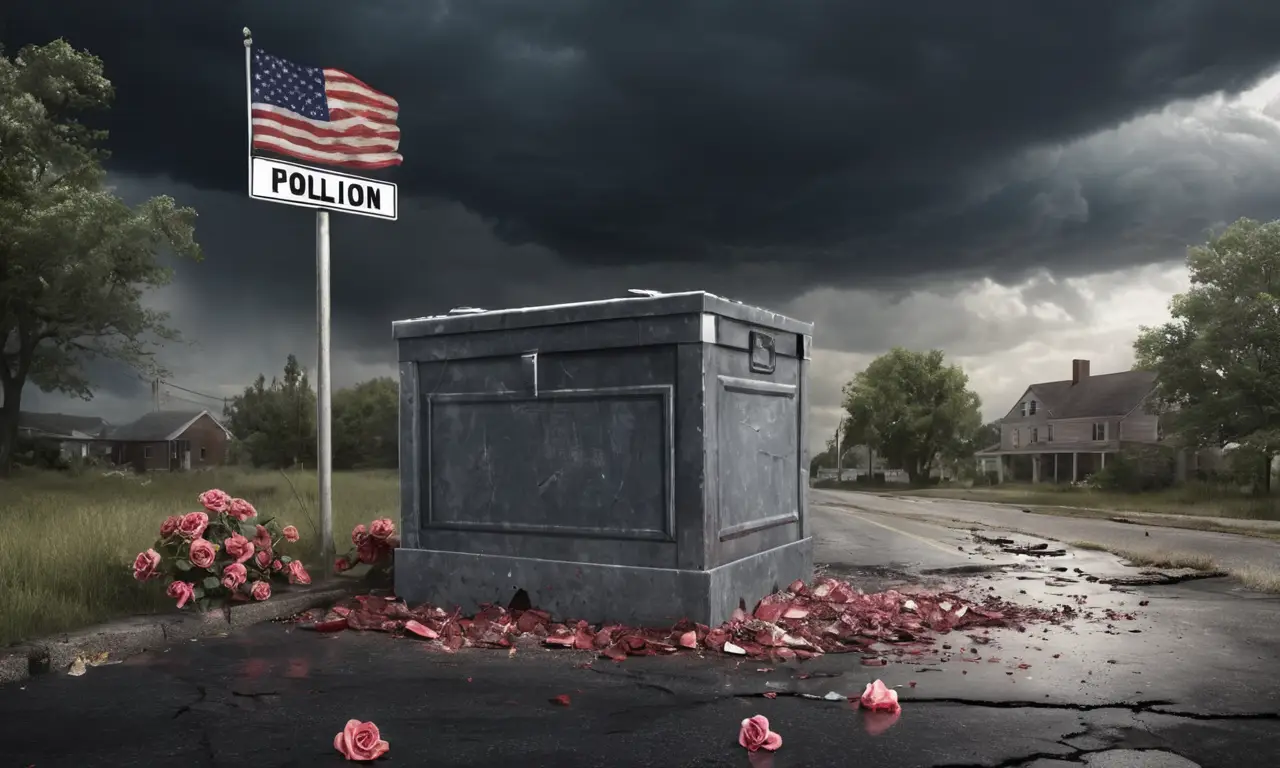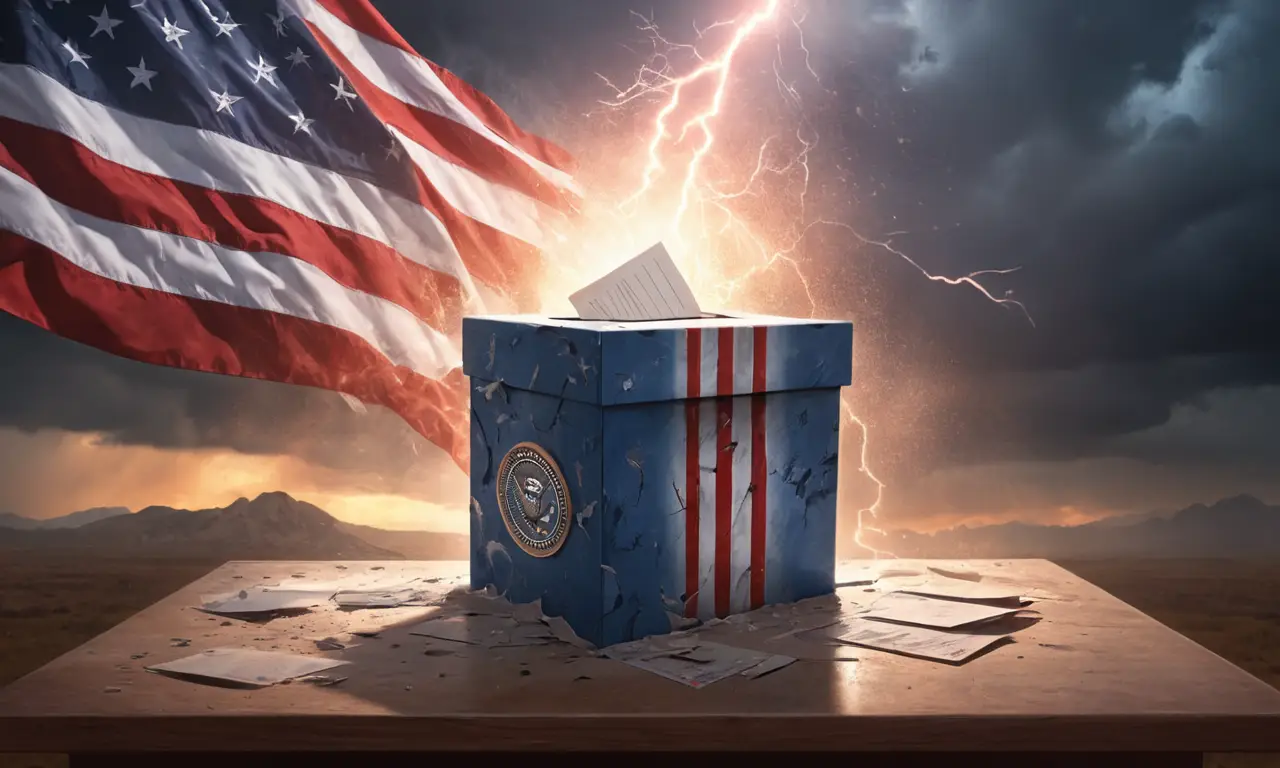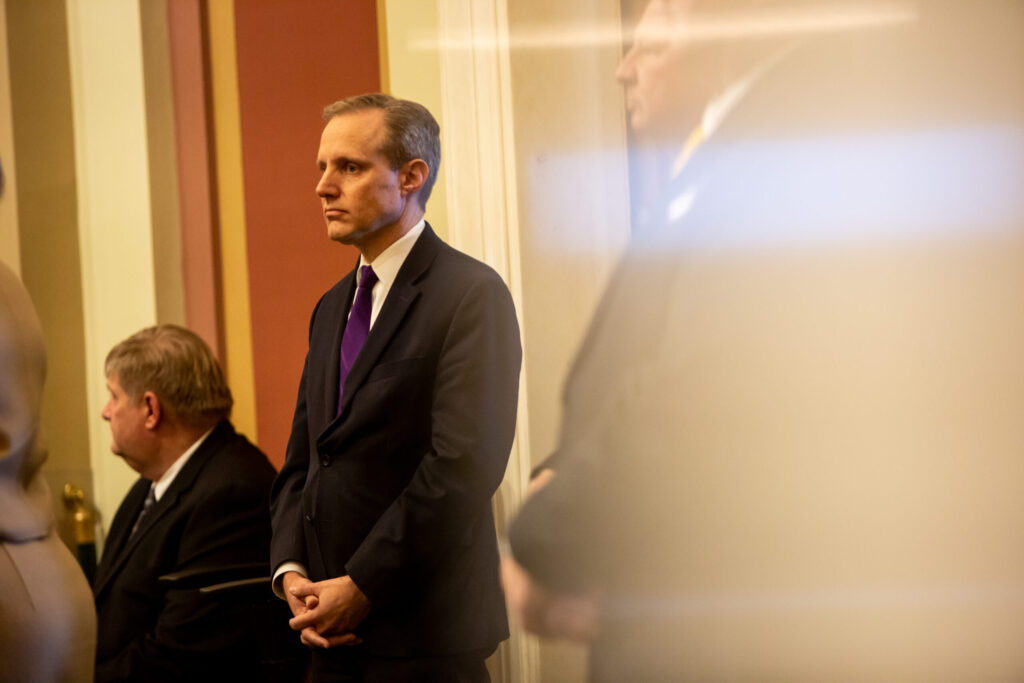The United States prides itself on being a democracy, where the power resides with the people. This principle is enshrined in the Constitution and manifested through regular elections, particularly the presidential election. However, what happens if this cornerstone of American democracy falters? What would happen if nobody voted for president? A scenario where no one participates in the electoral process presents a chilling thought experiment, one that could unravel the very fabric of the nation’s political system.
This article delves into the potential consequences of such an unprecedented event, exploring the constitutional framework surrounding it, the implications for governance, and the broader impact on democratic values. We will examine the challenges posed by what would happen if nobody voted in the US, analyzing the potential for a constitutional crisis and the erosion of public trust in government institutions.
US Presidential Election
The US presidential election is a complex process involving multiple stages, from primaries to general elections. Voters cast their ballots for electors who then formally choose the president and vice president. This system, designed to ensure representation and popular will, hinges on active voter participation. The Constitution mandates that a president be elected by a majority of electoral votes, with each state having a number of electors proportional to its population.
Historically, voter turnout has fluctuated in US presidential elections, influenced by factors such as the candidates, political climate, and public interest. While there have been instances of low voter turnout, a complete absence of participation would be unprecedented and fundamentally disrupt the established electoral process. The Constitution does not explicitly address the scenario of zero votes cast, leaving room for interpretation and potential legal challenges.
No Voter Participation

The implications of no one voting in a US presidential election are far-reaching and potentially catastrophic. Without a clear mandate from the electorate, the selection of a president would become highly contested. The Constitution grants Congress the power to determine the manner in which electors are chosen, but it does not specify what happens if no votes are cast. This ambiguity could lead to protracted legal battles and political gridlock, as different factions vie for control.
Furthermore, the absence of voter participation would signal a profound crisis of confidence in the democratic process. It would raise serious questions about the legitimacy of any government formed without popular support. The lack of public engagement could erode trust in institutions and fuel cynicism towards the political system. This could have long-term consequences for civic participation and the health of American democracy.
Constitutional Crisis
The potential for a constitutional crisis is undeniable if what happens if nobody voted becomes a reality. The Constitution, designed to provide a framework for governance, relies on the principle of popular sovereignty. When citizens abstain from voting, it undermines this fundamental principle and throws the system into disarray. The lack of a clear mandate could lead to competing claims to power, with different branches of government asserting their authority in the absence of a legitimate president.
This constitutional vacuum could create instability and uncertainty, potentially leading to a breakdown of law and order. The absence of a functioning executive branch could paralyze government operations, hindering the ability to address critical issues facing the nation. The crisis could also exacerbate existing social divisions, as different groups seek to advance their interests in the power vacuum.
Power Vacuum

A what would happen if nobody voted for president scenario would inevitably result in a power vacuum. The absence of a democratically elected leader would leave a void at the helm of government, creating a dangerous situation where decisions are made without popular consent or accountability. This could lead to arbitrary rule and the erosion of civil liberties.
Without a clear chain of command, it is unclear who would assume presidential powers in such an unprecedented situation. The Constitution outlines procedures for succession in case of death or incapacitation, but it does not address the scenario of no elected president. This ambiguity could lead to confusion and potentially dangerous power struggles within the government. The lack of a legitimate leader could also embolden extremist groups and undermine national security.
Democratic Legitimacy
The very foundation of American democracy rests on the principle of popular sovereignty, where the people hold the ultimate power. What would happen if no one voted would directly challenge this fundamental principle, casting serious doubt on the legitimacy of any government formed in such circumstances. The absence of voter participation would signal a profound crisis of confidence in the democratic process, eroding public trust in institutions and fueling cynicism towards the political system.
This erosion of legitimacy could have long-term consequences for American democracy, potentially leading to increased social unrest, political instability, and a decline in civic engagement. It is crucial to recognize that the right to vote is not merely a privilege but a fundamental responsibility that underpins the functioning of a democratic society.
Conclusion
The hypothetical scenario of no one voting in a US presidential election presents a chilling glimpse into the potential fragility of American democracy. While the Constitution provides some guidance, it lacks clear provisions for such an unprecedented eventuality. The absence of voter participation would trigger a constitutional crisis, create a power vacuum, and severely undermine democratic legitimacy.
It is imperative that citizens understand the importance of their right to vote and actively participate in the democratic process. By exercising this fundamental right, Americans can ensure that their voices are heard and that the principles of self-governance and popular sovereignty remain at the heart of American democracy.



